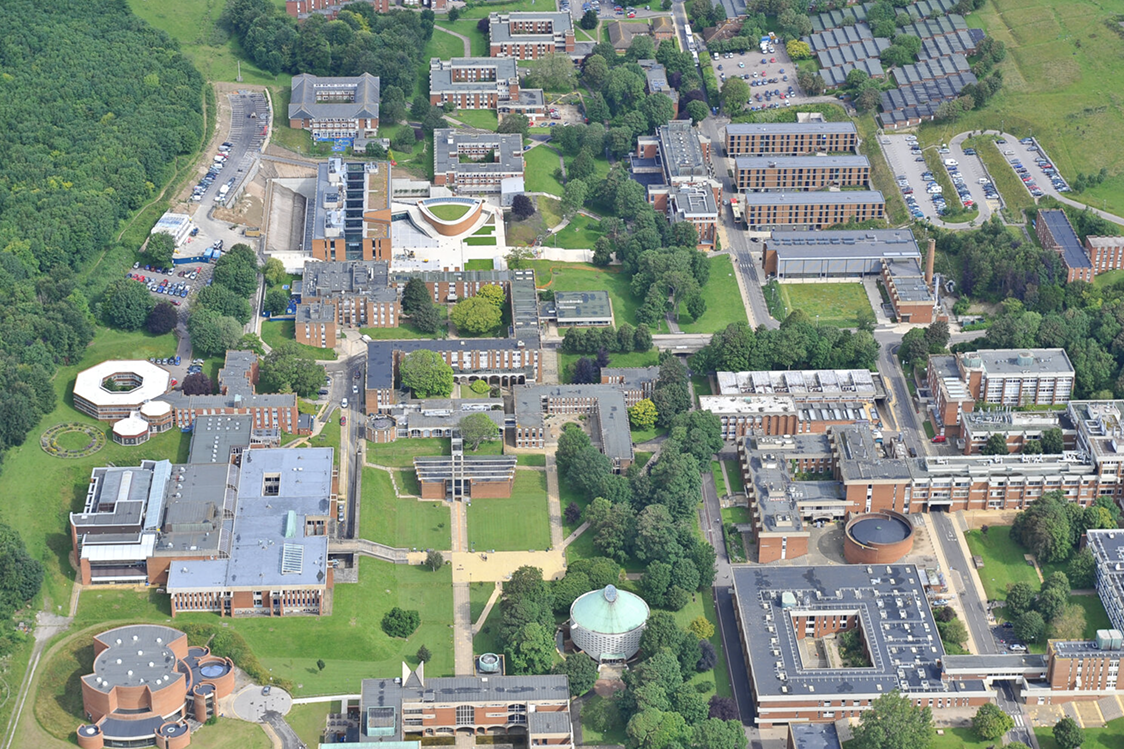
Since it first opened in 1996, Sussex Innovation has been based on campus at the University of Sussex. But what does that actually mean for its tenants? Joseph Bradfield explains some of the advantages of an academic address
Why might a business owner look to be based on a university campus? Our hub at the University of Sussex in Falmer differs in a few ways from the other serviced office spaces that you can find nearby. For a knowledge-based business, the address “Science Park Square, University of Sussex” lends a certain amount of credibility and kudos. But for many tenants, our location has a much more direct strategic impact for their business.
Commercialisation, collaboration and knowledge transfer
For some companies involved in knowledge transfer partnerships with researchers at Sussex, being based at Sussex Innovation just makes sense. The hub provides a professional space to host partners, investors and clients a few minutes’ walk from research and development taking place in the lab.
Businesses seeking research consult-ancy can also access a wide range of world-leading expertise through a close working relationship with the University’s Innovation, Business and Partnership Team, and bringing academic partners into a business-oriented space for meetings and planning sessions helps to facilitate a useful change in mindset.
Student and graduate recruitment
Finding and hiring the best young talent is becoming an ever greater challenge for SMEs, and straightforward access to students is another benefit of a campus home for many of our tenants.
The University runs several placement schemes throughout the year, helping local employers and current students to experience working with each other and build stronger relationships. There are also numerous opportunities for postgraduates with highly specialised expertise such as data intensive science, behavioural psychology or materials engineering to match with relevant employers.
Joint ventures at Sussex Innovation
There have been several success stories in recent years of commercial enterprises exploiting intellectual property developed by the University’s researchers whilst based out of Sussex Innovation. A few of these ventures include:
Enterprise Therapeutics
Enterprise Therapeutics is dedicated to the discovery and development of novel therapies to improve the lives of patients suffering with respiratory disease. The company was co-founded by Prof Martin Gosling, a Professor of Molecular Pharmacology at the University of Sussex, who is also its Chief Scientific Officer. It benefits from a close working relationship with the University’s School of Life Sciences; Henry Danahay, the Head of Biology at Enterprise also holds an honorary position in the Sussex Drug Discovery Centre, which sits within the academic school.
The research team’s portfolio of therapeutics for cystic fibrosis and other similar diseases was fully acquired by pharmaceutical giant Roche in 2020, and the company has raised several multimillion pound investment rounds as its programmes progress through clinical trials.
CDO2
As industry partners of the University’s Quantum Systems and Devices research programme, CDO2 has supported the development of a new technique for imaging the current flow in electric vehicle (EV) batteries, which will ultimately improve battery cell performance and safety.
CDO2’s strategy involved securing funding from Innovate UK and the Advanced Propulsion Centre to commercialise the technology, and both partners have ultimately become part of a consortium advancing the UK’s EV manufacturing capabilities. The project is currently establishing a pilot production facility in Thurso in Scotland, before a new ‘Gigafactory’ – the first of its kind in the UK – is built to make the batteries.
Advanced Material Development
Advanced Material Development (AMD) is a leading developer of nanomaterial technology solutions to address industrial challenges through material science research. The company has a commercial contract with the Sussex Materials Physics Group and Chief Scientific Officer, Professor Alan Dalton.
New types of nanomaterials developed by the University’s researchers have been used for such varied applications as environmentally-friendly RFID sensors for retail security tags, “smart tyres” that can measure strain and monitor for defects, and insulating panels used to test instruments for NASA’s Europa Clipper spacecraft.
AMD’s relationship with the University has been instrumental in raising a series of research grants to fund these programmes, as well as building relationships with customers for their innovations.





